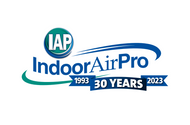4 Ways to Improve Air Quality At Home

4 Ways to Improve Air Quality at Home
As warmer weather rolls in, many of us want to open windows and doors, letting fresh air circulate through our homes and cool them down. However, the season also brings allergens that can affect indoor air quality, potentially causing discomfort and health issues. Maintaining good indoor air quality is essential, especially during spring and summer. Here are four methods of purifying air around the house to keep you and your family healthy.
1. Change Your HVAC Filters Regularly.
Heating, Ventilation, and Air Conditioning is a broad term that encompasses the systems that keep the air inside buildings comfortable, especially in the American air conditioning industry. Your HVAC system is essential in maintaining indoor air quality by circulating air throughout your home and capturing particulates with filters. However, those filters need maintenance. As time goes by, they can fill up with dust, dirt, and debris, making it hard for your system to work effectively. A blocked filter will make your HVAC unit work harder to push air through, which overheats and increases energy costs. Of course, a dirty filter can circulate allergens and pollutants, worsening the air quality and potentially causing allergies or respiratory issues.
Ensure to check your HVAC filters at least once a month. If dirty, change them with a good-quality filter, preferably a custom-made 3-ply depth-loading, antimicrobial, and HEPA-rated filter from IAP. This kind of filter can capture more microscopic particles, making indoor air quality much better. Companies like Indoor Air Professionals have a wide variety of solutions for residential and commercial clients to ensure that your HVAC system is performing optimally. A clean HVAC system is certainly one of the integral parts of ensuring a comfortable and healthy home.
2. Avoid Smoking Indoors.
Smoking indoors is one of the most significant contributors to bad indoor air quality. It contains thousands of harmful chemicals that stay in the air and settle on surfaces, exposure to which can bring dire health consequences, such as respiratory infections, asthma, and even cancer caused by second-hand smoke to children and pets.
While vaping seems like a less harmful alternative, the long-term effects are still being studied. Therefore, it is better to remain on the side of caution. For the sake of your family's health, commit to smoking or vaping outdoors. This simple change can drastically improve indoor air quality and create a safer living environment.
3. Keep Your Home Clean
A clean home is the core of good indoor air quality. Dust, pet dander, and other debris can accumulate, exacerbating allergies and forcing your HVAC system to work harder. Regular cleaning helps eliminate those pollutants and ensures your air remains fresh. To keep a house clean, one should schedule a routine cleaning. Sweep and vacuum frequently, and be sure to use a vacuum that is specifically designed for pet hair if you have pets. Dust surfaces often use a microfiber cloth or damp paper towel to pick up particles instead of just moving them around. Pay special attention to areas prone to moisture, such as bathrooms and kitchens, where mold can grow. Keep these spaces clean and dry. You can also use products like Kanberra Gel in areas with higher humidity. This all-natural gel helps combat mold and other pollutants, ensuring cleaner air throughout your home.
4. Open Windows Wisely
Opening windows will improve ventilation and bring in fresh air; however, being aware of outdoor allergens is always important. Higher pollen counts are usually brought about by spring and summer, which can bother those with allergies. Therefore, if you live in an area with high pollen counts, keep windows closed during peak times, mostly in the early morning or late afternoon. When outdoor air quality is good, open windows for cross-ventilation may flush out indoor pollutants. Fans can help improve the circulation of air. However, humidity should always be at an optimal level to avoid mold. Adding products like Kanberra Gel to your HVAC system can also aid in maintaining air quality. This gel is safe for children and pets and runs continuously to purify indoor air. Simply replace or refill the container when the gel turns dark, and you will enjoy cleaner air in your home.
Fresh Air, Happy Home: Your Guide to Better Indoor Quality
Improved indoor air quality leads to increased comfort and healthier living areas. If you improve your household's indoor atmosphere by changing heating, ventilation, and cooling filters from time to time, not smoking indoors, keeping the house free of dust particles, and managing your windows wisely, you can create a healthier environment for your family.
As we head into warmer months, don't forget that good indoor air quality helps prevent allergies and respiratory problems and is also a part of general health. You can be sure that your systems will be optimized for clean air with the expertise of HVAC professionals like Indoor Air Professionals. Fresh air awaits, and let your home become a happier, healthier place today!


